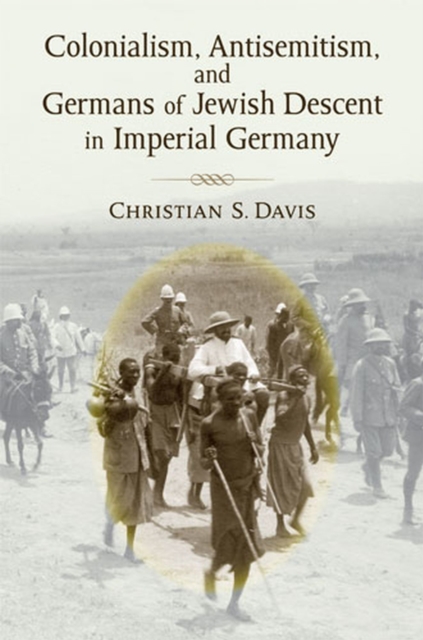
Colonialism, Antisemitism, and Germans of Jewish Descent in Imperial Germany Hardback
by Christian Davis
Hardback
Description
Working from the premise that the rise and propagation of antisemitism in late 19th-century Germany cannot be separated from the context of colonial empire, Colonialism, Antisemitism, and Germans of Jewish Descent in Imperial Germany is the first work to study the dynamic and evolving interrelationship of the colonial and antisemitic movements of the Kaiserreich era.
It shows how individuals and organizations that originated what would later become the ideological core of National Socialism-racial antisemitism-both influenced and understood the development of a German colonial empire predicated on racial subjugation.
This insightful volume also examines how colonialism affected the contemporaneous German antisemitic movement, dividing it over whether participation in the nationalist project of empire building could furnish patriotic credentials to even Germans of Jewish descent.
The book builds upon the recent upsurge of interest among historians of modern Germany in the domestic impact and character of German colonialism and on the continuing fascination with the racialization of the German sense of self that became so important to German history in the 20th century. 'The major contribution of Colonialism, Antisemitism, and Germans of Jewish Descent in Imperial Germany lies precisely in linking colonialism with antisemitism, which no one has done up to now.
It will influence how scholars think about the long-term continuities and ruptures in German history.'- Shelley Baranowski, University of Akron
Information
-
Out of Stock - We are unable to provide an estimated availability date for this product
- Format:Hardback
- Pages:224 pages, 7 images
- Publisher:The University of Michigan Press
- Publication Date:26/01/2012
- Category:
- ISBN:9780472117970
Information
-
Out of Stock - We are unable to provide an estimated availability date for this product
- Format:Hardback
- Pages:224 pages, 7 images
- Publisher:The University of Michigan Press
- Publication Date:26/01/2012
- Category:
- ISBN:9780472117970






